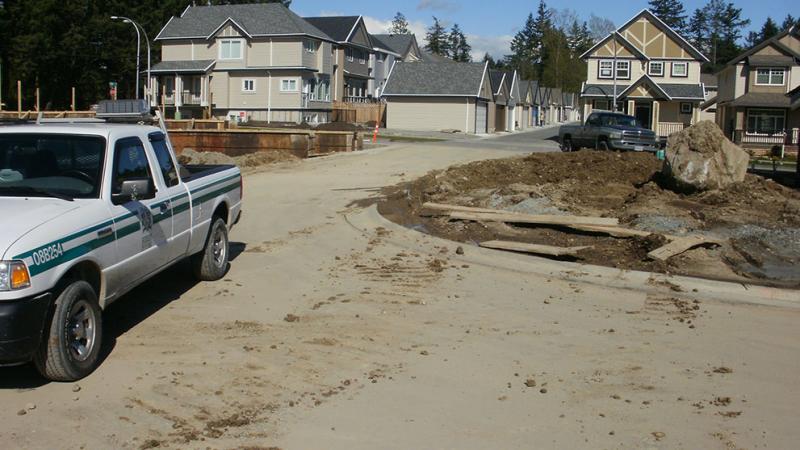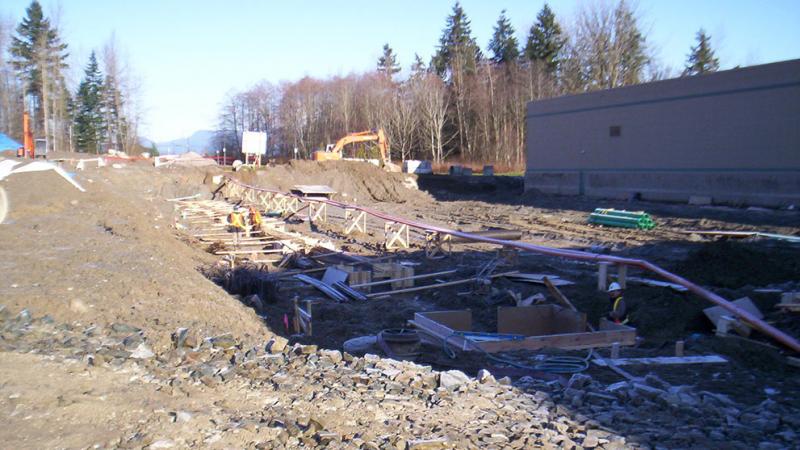Soil & Erosion
Learn how Surrey handles soil issues and helps control erosion by issuing permits.
Soil
Surrey manages three types of soil issues: soil deposit or removal, soil erosion, and dealing with contaminated soil. Moving soil around or off of your site can affect the drainage patterns of your surroundings. Therefore, for soil amounts greater than 15 cubic meters (m3), you will need a soil permit.
Erosion
Soil that washes off construction sites during periods of wet weather becomes sediment and can have detrimental impacts on drainage systems and the receiving waterways. Erosion and Sediment Control (ESC) is the practice of implementing both basic and engineered controls on construction sites to reduce the amount and volume of eroded soils washing off these sites when it rains.
Learn more about the management of soil-related issues, such as getting an ESC Permit, a Soil Deposition Permit, or preventing storm water pollution.

